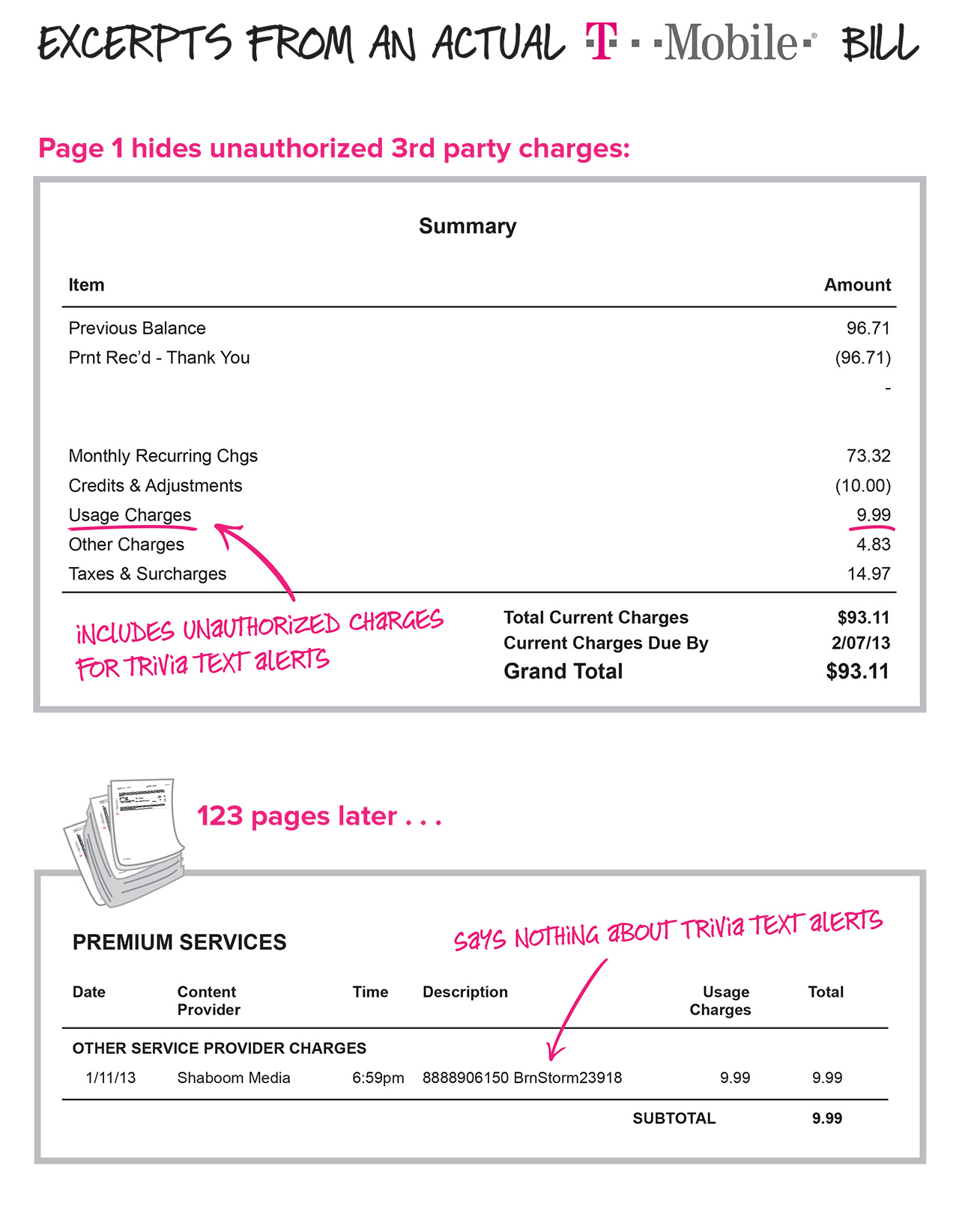Where all those charges on your phone bill come from
Starting on Sept. 1, Chicago residents will see their phone bills go up, thanks to higher fees collected by their city government. The nominal purpose is to fund 911 operations.
However, the acknowledged goal is to raise money that the city desperately needs to pay for pensions. And the widely-understood rationale among politicians is: If we raised the same amount by hiking property tax bills, people would notice, and complain. But people are used to seeing taxes and fees tacked onto phone bills. Who’s going to notice another few bucks?
Which raises the question: What are all those damn fees on your phone bill?
1. No matter where you live, some are sneaky taxes from all levels of government.
Experts confirm: Government officials love to sneak taxes and fees into phone bills— and anywhere they can that isn’t an actual tax bill.
“The bias is toward hiding taxes,” says David Brunori, a professor at George Washington University and deputy publisher of Tax Analysts. “That is true at every level of government. Politicians would rather have you pay the tax and not know about it.”
And yes, wireless phone bills in particular have become a favorite hiding place, says Scott Mackey, a consultant to the wireless industry with KSE Partners. “Really from 2003 to about 2012 we saw sort of a steady upward increase in wireless taxes and fees,” he says.
2. Though in some places, you’ll pay more taxes than others.
Mackey publishes a report every couple of years on wireless tax rates from state to state. The Tax Foundation made a sortable list from his last report.
“Chicago is going to be prominently featured in the 2014 report,” says Mackey. The new 911 fee will make the effective tax on cellphones the country’s highest.
3. A lot of items that look like taxes are just extra charges from your phone company
Chicago politicians are not the only ones who figure they can sneak an extra charge into your bill without you noticing. Your phone company probably does the same thing. Marc-David Seidel is a business professor at the University of British Columbia and the co-founder of a site dedicated to making sense of phone bills.
He says the heading “taxes and fees” on your bill should be a giveaway.
“The fact that it’s grouped together called taxes and fees, instead of just taxes, is a really high signal that there’s other stuff in there that’s actually not mandated,” he says. “It’s just a company-specific fee.”
Every company charges a different mix, he says, and they change all the time. If you really want to know what you’re paying— and why— he recommends looking for a consumer-advocate office in your state.
4. And then there’s the cramming scam.
The FTC recently accused T-Mobile of bilking customers out of millions of dollars by allowing third parties to place bogus charges on their bills, and taking a cut. T-Mobile’s public defense was essentially: Hey, we stopped doing this a few months ago—and it’s not like the other carriers are better.
Marketplace recently looked at how those charges end up on phone bills in the first place, and our friends at Ars Technica have been covering the story for years.
Here’s an example the FTC says comes from an actual T-Mobile bill:

There’s a lot happening in the world. Through it all, Marketplace is here for you.
You rely on Marketplace to break down the world’s events and tell you how it affects you in a fact-based, approachable way. We rely on your financial support to keep making that possible.
Your donation today powers the independent journalism that you rely on. For just $5/month, you can help sustain Marketplace so we can keep reporting on the things that matter to you.












